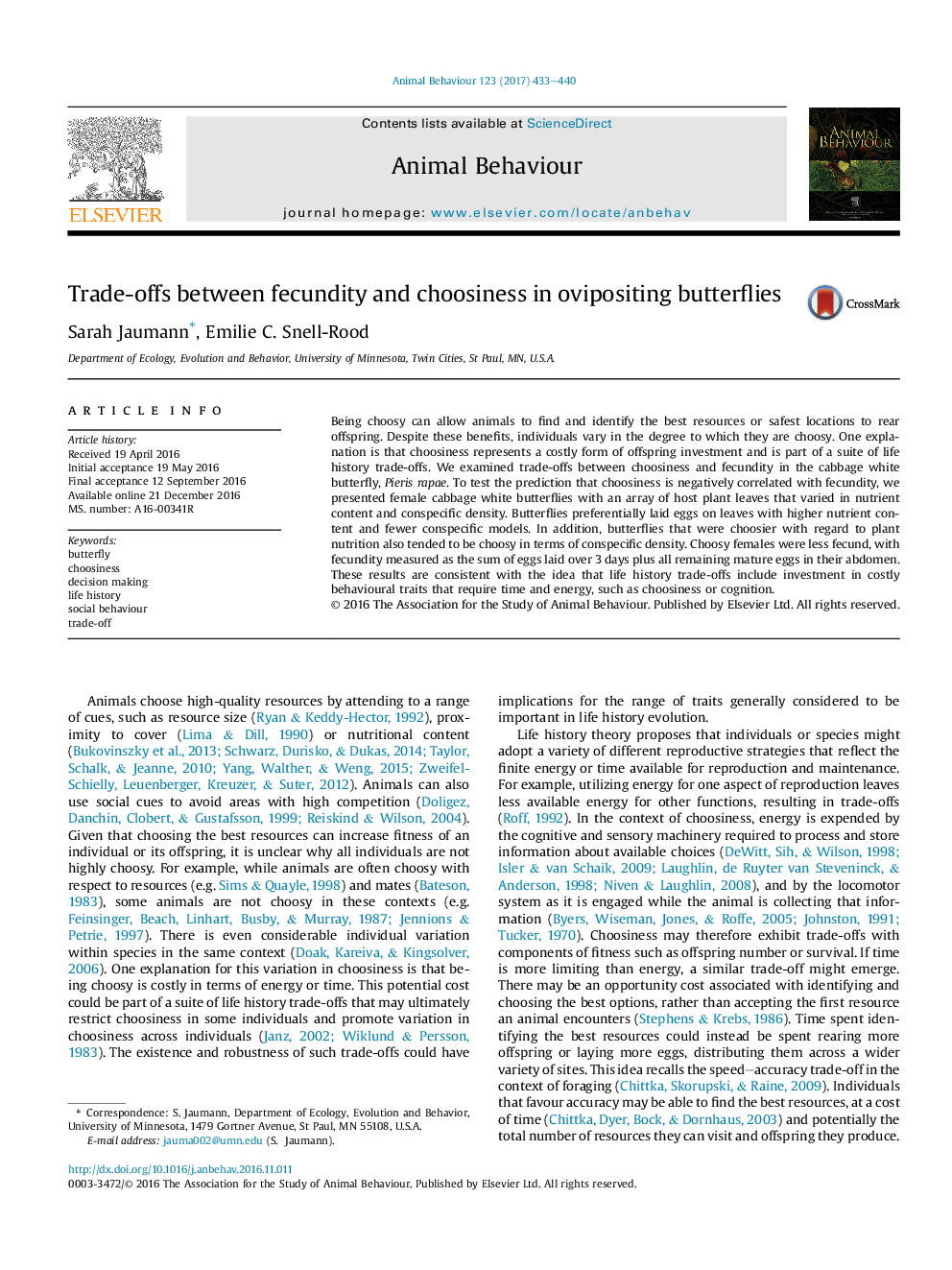| کد مقاله | کد نشریه | سال انتشار | مقاله انگلیسی | نسخه تمام متن |
|---|---|---|---|---|
| 5538607 | 1552205 | 2017 | 8 صفحه PDF | دانلود رایگان |
عنوان انگلیسی مقاله ISI
Trade-offs between fecundity and choosiness in ovipositing butterflies
ترجمه فارسی عنوان
تعارض بین باروری و انتخاب در پروانه تخمک گذاری
دانلود مقاله + سفارش ترجمه
دانلود مقاله ISI انگلیسی
رایگان برای ایرانیان
کلمات کلیدی
پروانه، انتخاب تصمیم سازی، تاریخ زندگی، رفتار اجتماعی، مصالحه،
موضوعات مرتبط
علوم زیستی و بیوفناوری
علوم کشاورزی و بیولوژیک
علوم دامی و جانورشناسی
چکیده انگلیسی
Being choosy can allow animals to find and identify the best resources or safest locations to rear offspring. Despite these benefits, individuals vary in the degree to which they are choosy. One explanation is that choosiness represents a costly form of offspring investment and is part of a suite of life history trade-offs. We examined trade-offs between choosiness and fecundity in the cabbage white butterfly, Pieris rapae. To test the prediction that choosiness is negatively correlated with fecundity, we presented female cabbage white butterflies with an array of host plant leaves that varied in nutrient content and conspecific density. Butterflies preferentially laid eggs on leaves with higher nutrient content and fewer conspecific models. In addition, butterflies that were choosier with regard to plant nutrition also tended to be choosy in terms of conspecific density. Choosy females were less fecund, with fecundity measured as the sum of eggs laid over 3 days plus all remaining mature eggs in their abdomen. These results are consistent with the idea that life history trade-offs include investment in costly behavioural traits that require time and energy, such as choosiness or cognition.
ناشر
Database: Elsevier - ScienceDirect (ساینس دایرکت)
Journal: Animal Behaviour - Volume 123, January 2017, Pages 433-440
Journal: Animal Behaviour - Volume 123, January 2017, Pages 433-440
نویسندگان
Sarah Jaumann, Emilie C. Snell-Rood,
